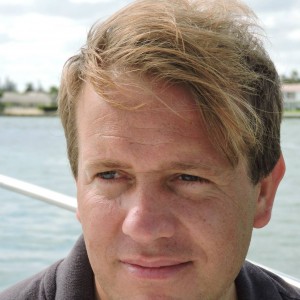EspañolArgentina’s Juan Domingo Perón (1895-1974) is a legend, a leader, a religion, a dictator, a caudillo, a savior, and a political movement, all at the same time. His name provokes either great respect or visceral hatred: no middle ground exists here.
On May 13, Argentinean writer Nicolás Márquez entered the debate, releasing a new book at the conservative Progress Club in Buenos Aires: Perón, the Fetish of the Masses.
So lasting is Perón’s influence in Argentina that Márquez struggled to find a venue for his event. At least three other establishments turned him down — “even those with like-minded anti-Peronist views,” he says — until he could finally stand before a packed auditorium on Wednesday.

Perón became president of Argentina no fewer than three times. The first time, in 1946, he won elections with 55 percent of the vote. His administration’s hallmark was an exorbitant rise in public expenditure, peaking in 1948, and redistribution policies akin to the welfare states that dominated the rest of the world in the post-WWII era.
Márquez sat down with the PanAm Post to discuss the Argentinean leader’s presidency, separate fact from fiction, and judge his legacy for better or for worse.
In your previous book, El Canalla (The Scoundrel), you demystified Ernesto “Che” Guevara. What are the myths surrounding General Juan Domingo Perón?
Many things about Perón have been buried with time. People knew about them, but they’ve since been lost into oblivion. New generations have no idea about him, or are barely acquainted with the most visible features of Perón’s dictatorial regime.
Very few Argentineans know that Perón rose to power through a coup d’état, inspired by Nazi ideology. The military government (1943-1946) he was part of intended to support Germany in World War II.
Perón’s influence in politics and the army grew during that military rule. He then obtains absolute power, legitimized by the popular vote (in 1946). From then on, he practically leads a plebiscitary dictatorship. His rule was marked by political repression, censorship, exiled Argentineans all over the place … Montevideo became what Miami is to Havana: full of exiled Argentineans who listened to Uruguayan radio stations like Cubans today listen to Radio Martí.
Other features of his government included a cult of personality, hero-worship, and even an attempt to replace the Catholic religion with a secular one: the national Peronist religion. He took the cult of personality to sickening new heights, indoctrinating children at schools.
Hence the title of my book, because in primitive societies a fetish was a sacred object to be revered.
Perón imposed Peronist doctrine as the national ideology. What did it consist of, and was it beneficial for the country?
First of all, it wasn’t, because Peronist doctrine was placed above the Constitution. The Supreme Court itself said so. It was a dysfunctional period for Argentina.
Second, it was very vague, as was Perón himself. A biographer from the United States, Joseph Page, said Perón “turned the use of ambiguity into an art form.”
Perón used to say, “we’re neither rightist nor leftist nor centrist, we’re on the other side of the road.” His discourse was so imprecise that it allowed him to embrace anything and legitimize any measure.
If I were pressed to define Perón’s ideology, I would say he tried to reconcile the social classes by means of an arbitrator, the interventionist state.
In some sense that comes from Marxism, because Perón wanted to take away from the rich to give to the poor, so he could keep the latter under control and prevent a revolution. He begins with the premise that wealth has to be redistributed, and the “haves” are so because of the “have-nots.”
Perón banned homosexuals from voting. That’s just one interesting fact that underscores the scope of state intervention during that time.
No one can criticize him for that, but he did enact the ban in the same year. That homosexuality law had no practical effect, but it just goes to show the government’s invasive spirit.
Was Perón a populist leader?
He was, an authoritarian populist with a nationalist streak. In contrast, Kirchnerism is a somewhat less authoritarian brand of populism, but with a progressive bent.
To me, being a Peronist is to subscribe unconditionally to Peronism. They say that those who don’t show the necessary emotion don’t understand Peronism, as if it were a soccer club. As if they suffered from a cognitive problem.
But when you’re emotionally committed to something, reason yields to emotion, which is stronger.
Perón was such a multifaceted character that you can always find a quote from him to justify basically anything. In his last period, Perón privatizes oil, the very symbol of Argentinean sovereignty.
His wife, Evita, what was her role in all this? Would Perón have been the same without her?
From a Marxist outlook, Perón was someone who anesthetized the masses to stall a revolution. But Perón didn’t sit well with the masses, because he came from the military ranks, he was a conservative, a powerful member of the bourgeoisie without a revolutionary profile.
Eva, on the other hand, did. She was a poor, illegitimate, actress of ill-repute who from that outcast position rises to extreme power to denounce the oligarchy furiously. Evita contributed what Perón lacked, the revolutionary mystique. Eva gave him that popular appeal.
Perón’s harshest speeches came after Eva’s death, because she used to give those kinds of speeches.
 Versión Español
Versión Español













